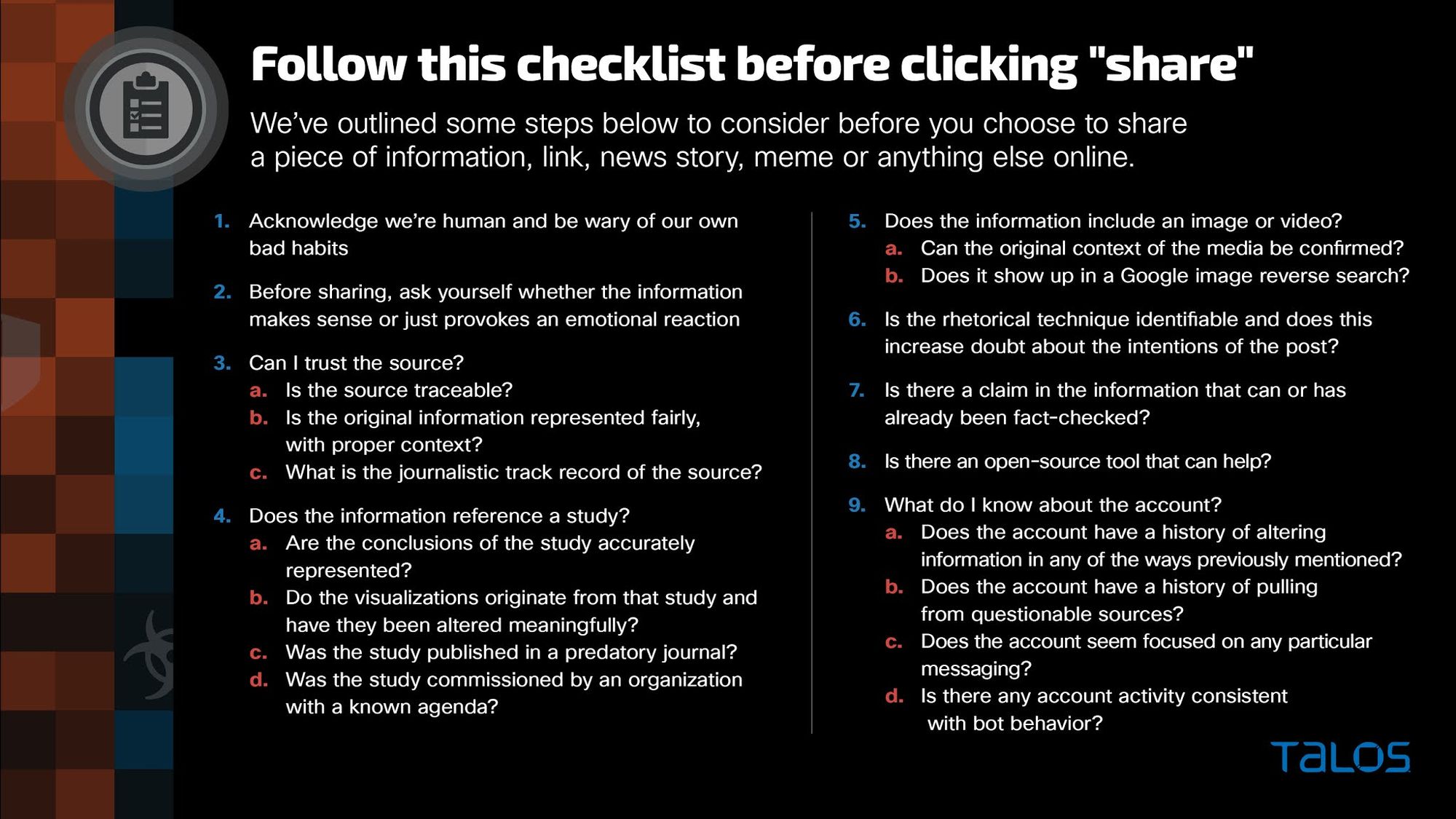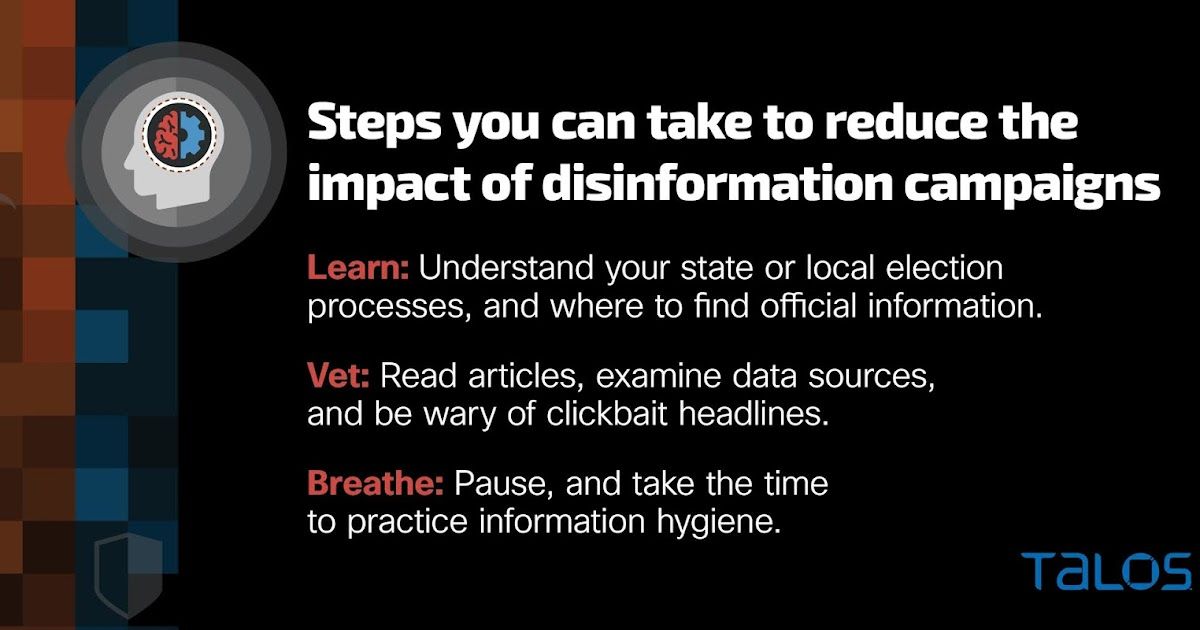By Amy Henderson.
Information operations have been around for millennia, yet with the advent of the internet and the democratization of content creation, the barriers to entry have lowered to a point that anyone can play now.
In the course of our latest research on disinformation, with an eye toward election security, we have covered the what, how and why of disinformation campaigns, state and non-state actors that engage in this behavior, as well as the psychological effect on society. To finalize this research, we want to ensure that we leave our audience with actionable guidance on how they can counteract disinformation, stop the spread and educate themselves.
Learn, vet, breathe
- Learn: Take the time to understand your state or local environment and election and voting processes.
- Visit and follow your official secretary of state or local election director’s social media sites and websites for up-to-date information.
- Understand, even at a high level, the country’s election system. This may include how popular voting and electoral systems or parliamentarian systems work.
- Understand the tactics and techniques of digital media and how they are used by disinformation actors, including targeted ad-buying and clickbait headlines to expose emotional responses.
- Vet: Read articles and examine data sources.
- Know your sources.
- Bot accounts: Retweets and trending articles can come from amplifying bots. If you don’t know the account, investigate its history and pay attention to timestamps. If you’re unsure, a simple tool like Bot Sentinel can help.
- Verify data: If an article highlights a study, or report, be sure you can search for and verify its findings. Simple Google or DuckDuckGo searches should tell you whether the study is real, and any other articles confirming so.
- Manipulated Media: Be wary of media clips and pictures that convey outlandish situations or are meant to create highly charged emotional reactions. It’s increasingly easy to manipulate media and create deep fakes. Social media companies are becoming more proactive at identifying and labeling manipulated media as such and have reporting mechanisms in place.
- Be wary of clickbait headlines, especially as it pertains to election and voting information. A recent example of this was a concerted effort by foreign adversaries to promote a “hacking” of voter registration information. This information is publicly available though, and Michigan authorities responded through social media.
- Breathe: Take the time to practice information hygiene.
- Follow the checklist from our human levers of disinformation post (shown below)
- Conscientiously follow multiple sources of information on social media, as well as traditional media sources, so you can get alternate viewpoints. As much as we dislike confrontation, or confronting our own biases, the filter bubble can expose us to more targeted disinformation campaigns.
- Pause before you retweet, like, share, or send across a headline that you agree with. Just as in our everyday professional lives when we want to send that email, we benefit when we pause for a few hours or sleep on it overnight. Our work and business relations are much more fruitful when we don’t rely on our initial emotional reaction, but rather pause, review and then respond.
Finally, we want to encourage American voters to set your expectations accordingly in 2020. It is highly likely that we won’t go to bed knowing who won the election, and we won’t know in the following days and possibly weeks. This is not an indication of foul play. Amid record early voting, absentee ballots and expanded mail-in voting options across the country, the voting process and election night reporting will most likely take longer than normal. This is an environment in which misinformation and disinformation can run rampant. You can safeguard yourself against falling victim to these campaigns by following the above and listening to official sources.
As citizens that believe democracy can be messy, we would also like to promote that you talk with your neighbors who might think differently than you (civilly). These are emotional times, but we can use them to connect with those around us.

